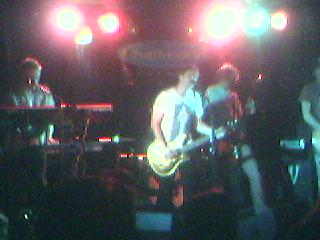This book is the second part of a projected trilogy by Drummond (also known as King Boy D of The KLF) and Manning (better known as Zodiac Mindwarp of the band Zodiac Mindwarp and the Love Reaction). The first book, ‘Bad Wisdom’, was published in 1996 or so.
Relevant flashback: as I was travelling on the tube one Friday morning in 1996 or so, I was reading ‘Bad Wisdom’. An Australian woman asked me what I was reading, and if it was any good. My reply was that it was kind of a travel book, but written by two authors, and one of them was totally unreliable, so you didn’t know how much to believe. This was true, but the reality of the situation was that the woman was friendly and pretty, and I didn’t want to alienate her by telling her the full truth, which is that Bad Wisdom was without a doubt one of the most insane and filthy books I’d ever read in my life.
And that’s the case with the follow-up too; as Drummond and Manning write of their journey up the Congo to perform a Punch and Judy show for the President in an attempt to win back their souls from the Devil (see, told you it was mad), pretty much every taboo is on show: racism, sexism, murder, homophobia, rape, cannibalism, paedophilia, and just about every scatological variation you could think of.
The two authors alternate their sections, though even that’s questionable, as it becomes clear partway through that Manning’s added fictionalised events under Drummond’s name. Drummond, on the whole, tries to give a linear version of events – or at least as linear as can be, given that we’re possibly dealing with a journey which may not have taken place in anything like the form depicted – whilst Manning’s sections are (at least I hope) utter fiction: depicting himself as a serial killer in league with a sexually depraved murderous BBC international reporter, sexual predator and alcoholic, Manning’s sections are at first fairly shocking, and then after a while amusing in so far as he does seem able to keep coming up with scenarios which are more and more designed to shock. It’s pretty obvious that he’s doing it for effect – though quite what effect he’s hoping to achieve, I’m at a bit of a loss to ascertain – and there’s a funny section where Drummond asks the reader why they think Manning writes the stuff he does. It almost suggests a degree of despair at his co-writer, as the gross imagery does tend to overwhelm the insights which lurk within Drummond’s sections.
The book’s about twice the length of its predecessor, and Drummond admits on the penultimate page that a reader would need to be pretty dedicated to have made it that far, and he’s not wrong, really; it feels a bit like a wade in every conceivable kind of filth, so it might be seen as something of an endurance test, but having finished it, I feel it was worthwhile, though I can’t quite tell you why. Whether it’s merely because I feel vaguely as if I’ve read something which could legitimately be classified as ‘obscene’, and have therefore put one over on ‘the man’, or whether I’ve just become so inured to the horror on show in the book and have effectively made myself slightly less sensitised, I couldn’t really say. But it felt worth reading, and I suspect that if the third volume ever sees print (I have some doubts – the first volume was published by Penguin, and the second by the smaller Creation Books, apparently on the grounds that the racism on display, however feigned, put Penguin off), I’ll be back to read that.
Despite some concern about what new obscenities Manning will once again commit to the page, and how much (or how little) they might startle me.



